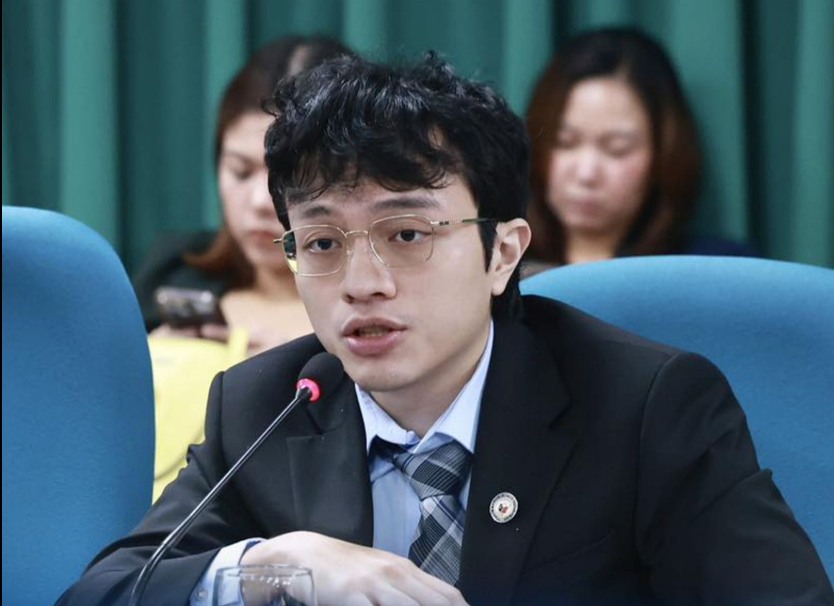📷: Nars Alyn Andamo | FB
By DIEGO MORRA
Apparently, the Supreme Court (SC) found violations of due process in the filing of the impeachment complaint by the House of Representatives against Vice President Sara Zimmerman Duterte Carpio, thus dealing it a fatal blow and extending Duterte Jr.’s date with impeachment for six months, or February 6, 2026 to be exact.
In a ruling written by Associate Justice Marvic Leonen, the SC stated that the one-year bar rule in the 1987 Constitution provides that “impeachment proceedings cannot be initiated against the same official more than once within one year.” Under Article XI, Section 3(4), the mode of impeachment is through a resolution filed by at least one-third of the House. Article XI, Section 3(2), covers impeachment through committees. Originally, three impeachment complaints were lodged against Sara by various organizations led by the Makabayan Coalition and Bayan Muna.
Duterte argued in her petition before the SC that the one-year bar rule was violated since House Secretary General Reginald Velasco did not “immediately” refer the three verified impeachment complaints to the Speaker as mandated by the rules of the lower chamber. What motivated Velasco to do so? Nobody knows at the moment. Perhaps the House can ask him: Why? Instead, the Lower House crafted its own impeachment complaint after archiving the three earlier complaints that could have been consolidated to strengthen the case against Duterte. Archiving the first three complaints did not alter the fact that they were filed before the House of Representatives, which was supposed to be duty-bound to examine the articles of impeachment validly filed before the lower chamber in February 2025. The High Court agreed and stressed that the impeachment is already barred under Article XI, Section 3(5) (one-year bar rule.) Leonen maintained that the one-year prohibition is reckoned from the time an impeachment complaint is dismissed or is no longer viable.
Since the second filing of the articles of impeachment against Duterte was already unconstitutional on due process grounds, the Senate cannot acquire jurisdiction over the case and initiate an impeachment trial. This simply means that all the legal polemic over the case against Sara amounted to nothing, and Congress wasted so much time and resources in crafting its own articles of impeachment that included the death threats issued by Sara against President Ferdinand Marcos Jr., First Lady Liza Cacho Araneta Marcos and Speaker Romualdez. Moreover, the SC found it necessary to set the rules on the matter, which requires the inclusion of evidence sufficient to prove guilt and the dissemination of the complaint and the mountain of evidence to all members of the Lower House. It added that House members should be given ample time to make their “independent decision” on the matter. The High Court also requires that the respondent should be given a chance to be heard on the articles of impeachment and the supporting evidence before the documents are transmitted to the Senate.
The SC’s decision to ask the Lower House specific questions was unusual, legal experts opined. “Without commenting on the merits of the petition, the level of detail may subject the House’s internal processes to a level of scrutiny that the Court usually hesitates to take in relation to a co-equal branch,” University of the Philippines College of Law professor Paolo Tamase earlier said. In short, the High Court may be engaged in judicial overreach as it demanded that the evidence prove beyond reasonable doubt that the respondent, in this case, Sara Duterte, committed high crimes. The entire country thought that then impeachment trial is not a criminal proceeding but a means to oust officials who have lost the trust and confidence of their constituents.
In retrospect, the SC decision actually provides ample ammunition for Marcos Jr. to return to his sheep, when he declared that he opposed the impeachment of Sara Duterte since it would not benefit a single Filipino and divert the attention of citizens at a time when the President is promoting Bagong Pilipinas, a political paradise for Filipinos committed to progress and national renewal, only that nobody knows until now what the Bagoong Pilipinas really is. Yet, Marcos Jr.’s refusal to support earlier calls for the Lower House to throw the books at Sara Duterte is mirrored in the SC decision, which makes it harder for the Lower House to nail abusive impeachable officials led by Sara.
If presidential pleasure were for the country not to treat Sara’s financial abuse as an impeachable offense, the Palace can certainly craft a scenario that would lead to the complaint being declared “unconstitutional” and not worth anybody’s time. Marcos Jr.’s earlier opposition to Sara’s impeachment was actually the opposite of what the majority of the Filipino people wanted. If more than 80% of survey respondents nationwide want Sara tried and stripped of her post, then Marcos Jr. would be subverting that popular clamor and condoning financial shenanigans that started when the Palace gave her cash (to which she was not entitled to) in the dying days of 2022.
This entire Sara impeachment saga must be analyzed in the context of the factional infighting within Team Unity and beyond and why Malacanang bent over backwards to please Sara Duterte despite the irregularities being committed in both the Office of the Vice President (OVP) and the Department of Education (DepEd), both of which became venues for dispensing cash to a ghost army of informers, spending hundreds of millions for Metro Manila’s urban poor families in preparation for 2028. To be precise, Sara has the moxie, like her father, and for this she should be made to answer for her misdeeds. Of course, Sara will spin the SC decision as a huge win for her even as the ruling does not absolve her. Her claque will work triple-time to promote lies and the shills will expect more cash in their ATM accounts. For the nonce, the SC decision will naturally be derided for zeroing in on legal technicalities while papering over the substance of the articles of impeachment. Well, as they say, when the SC commits a grievous error, it becomes part of the law of the land.




